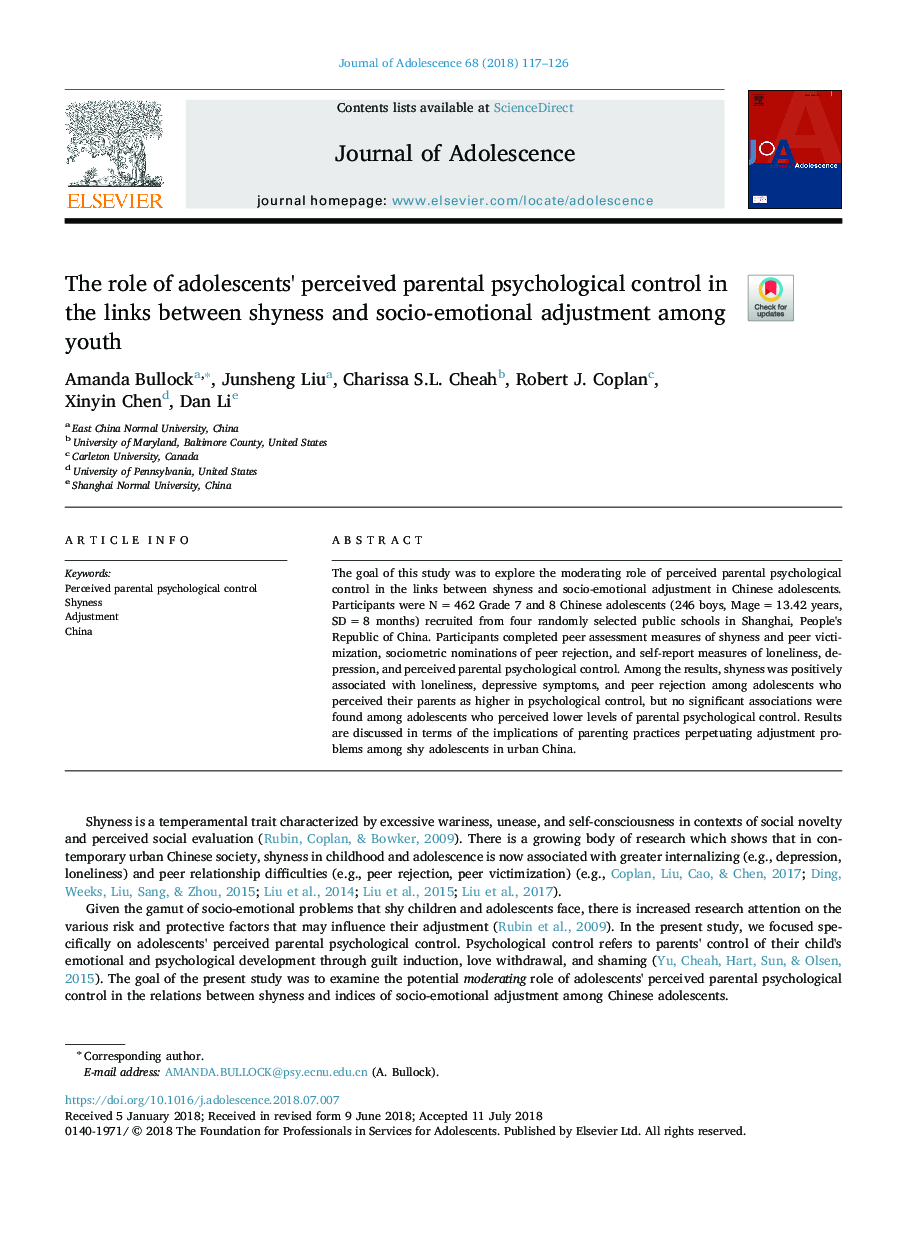| Article ID | Journal | Published Year | Pages | File Type |
|---|---|---|---|---|
| 7240663 | Journal of Adolescence | 2018 | 10 Pages |
Abstract
The goal of this study was to explore the moderating role of perceived parental psychological control in the links between shyness and socio-emotional adjustment in Chinese adolescents. Participants were Nâ¯=â¯462 Grade 7 and 8 Chinese adolescents (246 boys, Mageâ¯=â¯13.42 years, SDâ¯=â¯8 months) recruited from four randomly selected public schools in Shanghai, People's Republic of China. Participants completed peer assessment measures of shyness and peer victimization, sociometric nominations of peer rejection, and self-report measures of loneliness, depression, and perceived parental psychological control. Among the results, shyness was positively associated with loneliness, depressive symptoms, and peer rejection among adolescents who perceived their parents as higher in psychological control, but no significant associations were found among adolescents who perceived lower levels of parental psychological control. Results are discussed in terms of the implications of parenting practices perpetuating adjustment problems among shy adolescents in urban China.
Keywords
Related Topics
Health Sciences
Medicine and Dentistry
Public Health and Health Policy
Authors
Amanda Bullock, Junsheng Liu, Charissa S.L. Cheah, Robert J. Coplan, Xinyin Chen, Dan Li,
